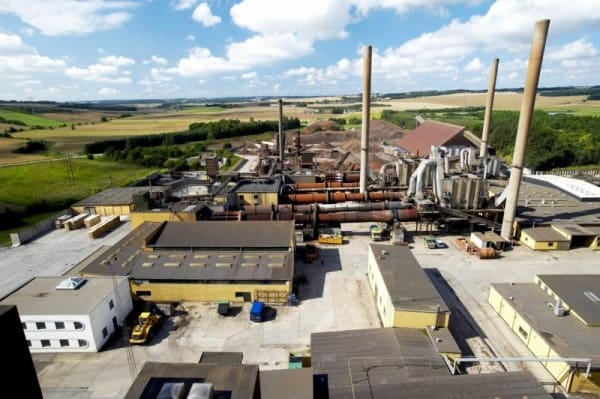
Each and every day, a conveyor belt moves about 1000 tonnes of raw clay from Leca Denmark’s clay pit to the company’s factory in Hinge. Here, a harsh treatment process awaits the moist raw material, which will ultimately transform the clay into the widely known brown Leca® balls and other Leca® products.
“A conveyor belt transports the raw clay into the large rotary kilns. Along the way, the clay goes through several moulding procedures, so that the clumps end up being between the size of a hand and a big boulder. It is an extremely heavy industry that involves, among other things, electric motors, gears and couplings,” explains Maintenance Manager Tonny Hedevang.
The kilns are only turned off twice a year.
The temperature in the rotary kilns is around 1200 degrees Celsius. The heat releases thousands of small gas bubbles which are trapped in the clay and give the material its characteristic lightness when the clay is shaped into balls by the kiln’s circular motion. Stopping and starting the kilns is an extremely costly operation, so Leca Denmark is keenly focused on preventing breakdowns in the production process.
“We only shut down the kilns for Christmas and the summer holiday in order to perform our regular maintenance. The rest of the year, it’s all about keeping them constantly fed. It’s really hard on the gears and motors, so we have to have durable equipment. Products and equipment of poor quality and short service lives just won’t do,” Tonny explains.
Close contact to Hoyer
Because of the company’s sharp focus on operational reliability and fast service, Leca Denmark remains in close contact with their suppliers, including Hoyer, which supply electric motors, gears and other transmission parts.
“We can’t be experts on everything, so it’s very comforting to know that Hoyer knows the factory and our equipment, and that they can react quickly if problems arise. A few months ago, for example, we were having trouble with some couplings. Well, out came our regular contact person from Hoyer, who inspected the parts and quickly found a solution,” Tonny recalls.